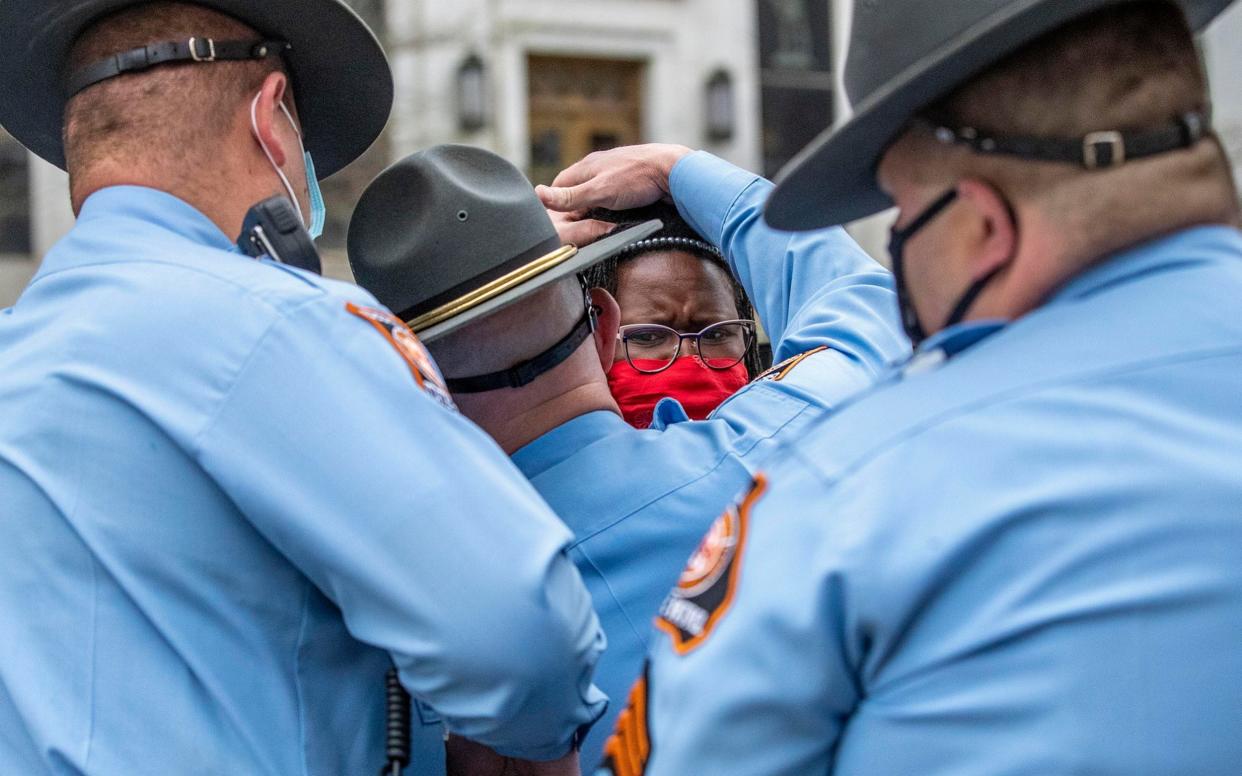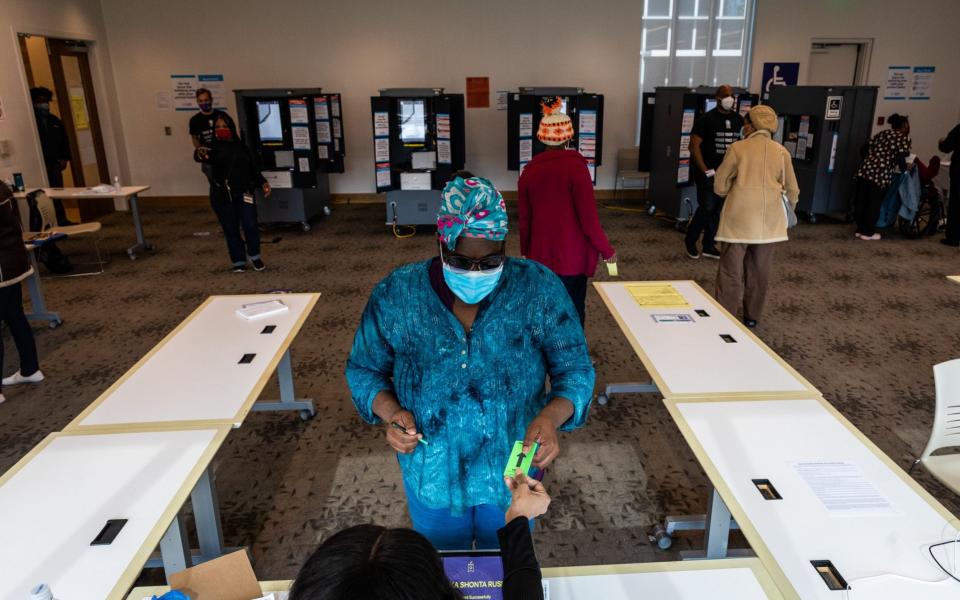Democrat arrested for protesting restrictive new Georgia voting law

- Oops!Something went wrong.Please try again later.
- Oops!Something went wrong.Please try again later.
- Oops!Something went wrong.Please try again later.
- Oops!Something went wrong.Please try again later.
A Democratic lawmaker in Georgia was arrested and forcibly removed from the state Capitol on Friday after knocking on the governor’s door to protest against a sweeping election bill restricting voting access.
Representative Park Cannon, who is facing charges of public disruption, was attempting to stop a press conference inside Brian Kemp’s office over new legislation that forbids volunteers providing food and drink to queuing voters.
Republicans in Georgia have imposed sweeping new restrictions on voting access that make it harder to vote by mail, making it the first presidential battleground to impose new voting restrictions following Joe Biden's victory in the state.
Georgia lawmakers on Thursday gave final approval to legislation, following record-breaking turnout that led to Democratic victories in the presidential contest and two US Senate runoffs in the once reliably red southern state.
President Joe Biden is "worried" about the restrictions, White House press secretary Jen Psaki said on Friday.
"There's nothing more precious than the right to vote and speak up," Ms Psaki told reporters, adding that she expected Mr Biden to soon make a statement on the issue himself.
On Thursday, he called such efforts "un-American" and "sick" during a news conference.

The legislation requires voters to submit ID information with both an absentee ballot request and the ballot itself.
It limits the use of absentee ballot drop boxes, allows for unlimited challenges to a voter’s qualifications, cuts the runoff election period from nine to four weeks, and significantly shortens the amount of time voters have to request an absentee ballot.
Democrats and voting rights groups say the law will disproportionately disenfranchise voters of colour.
In a tweet after she was released, Ms Cannon, who is black, vowed to continue to fight for voting rights in the state, saying she would "not stand by" while those rights are threatened.
A group of voter mobilisation groups filed a lawsuit late Thursday in federal court in Atlanta challenging the new law.
Gloria Butler, a Democratic state senator, said the bill would make it harder to vote, especially for poor and disabled people. “We are witnessing a massive and unabashed assault on voting rights unlike anything we’ve seen since the Jim Crow era,” she said just before the bill passed.

Democratic Representative Rhonda Burnough said the bill is based on lies told by Republicans after November's election.
"Georgians turned out in record-breaking numbers because they could access the ballot," Ms Burnough said. "Lies upon lies were told about our elections in response, and now this bill is before us built on those same lies."
Republican Representative Jan Jones said the provisions cutting the time people have to request an absentee ballot are meant to "increase the likelihood of a voter's vote being cast successfully," after concerns were raised about mail ballots not being received in time to be counted.
One of the biggest changes gives the GOP-controlled legislature more control over election administration. That has raised alarms about potential greater partisan influence.
The law replaces the elected secretary of state as the chair of the state election board with a new appointee of the legislature after Republican Secretary of State Brad Raffensperger rebuffed Mr Trump's attempts to overturn Georgia's election results. It also allows the board to remove and replace county election officials deemed to be underperforming.
That provision is widely seen as something that could be used to target Fulton County, a Democratic stronghold covering most of Atlanta, which came under fire after long lines plagued summertime primary elections.
Republican Representative Barry Fleming, a driving force in crafting the law, said that provision would only be a "temporary fix, so to speak, that ends and the control is turned back over to the locals after the problems are resolved".
The law also reduces the timeframe in which runoff elections are held, including the amount of early voting for runoffs. And it bars outside groups from handing out food or water to people in line to vote.
The law does not contain some of the more contentious proposals floated by Republicans earlier in the session, including limits on early voting on Sundays, a popular day for Black churchgoers to vote in "souls to the polls" events. It instead mandates two Saturdays of early voting ahead of general elections, when only one had been mandatory, and leaves two Sundays as optional.

